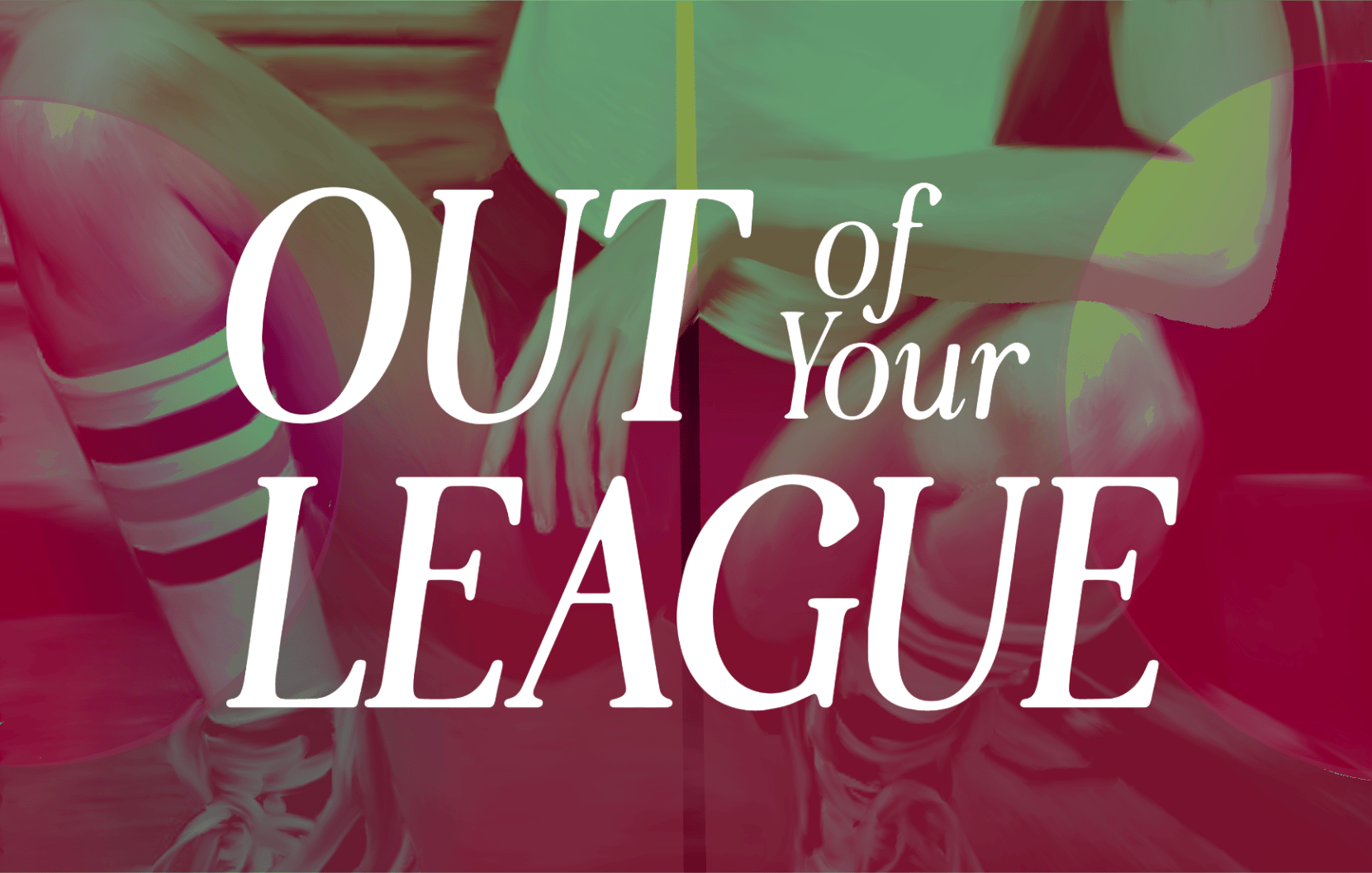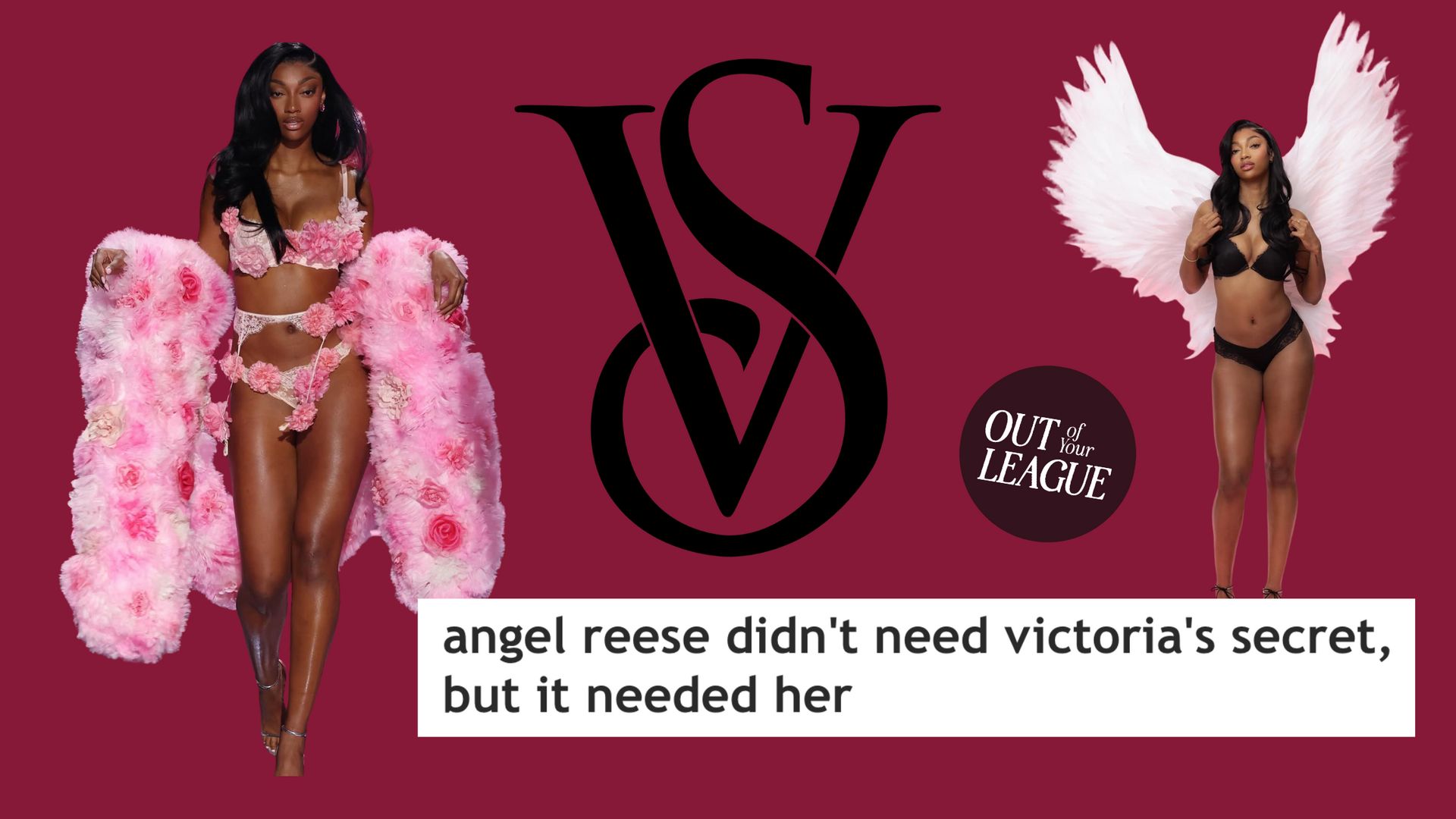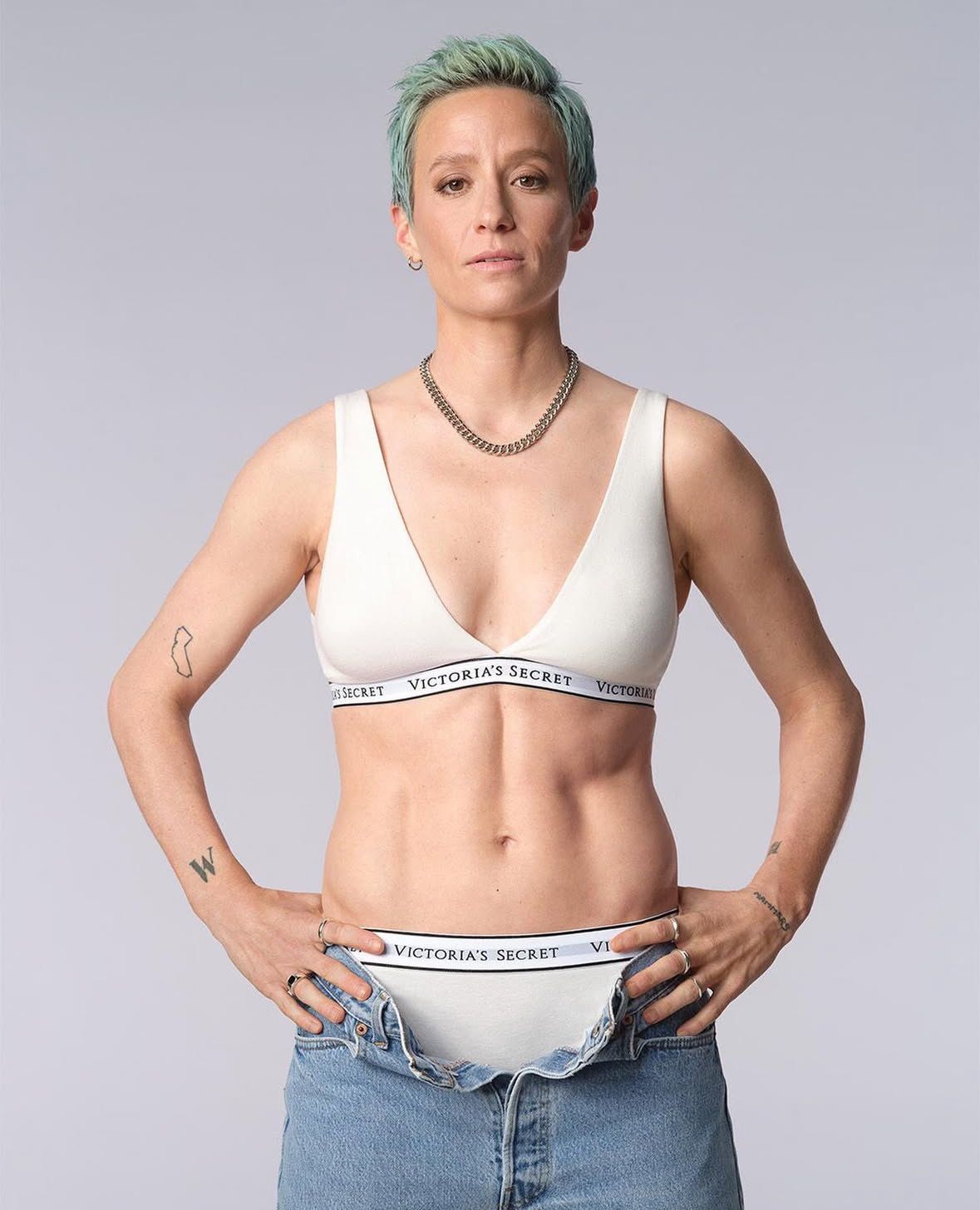
Thank you so much for being here! I am a full-time freelance writer and paid subscriptions to this newsletter allow me to continue to do work like this, as well as hiring an editor for longer, more involved posts (like this one!). A paid subscription also supports the community that we are building here, which includes events like the Out of Your League Book Club and our (very active) paid subscriber Discord server. You can upgrade here:
Some subscribers have reported issues with the links in these emails. Please let me know if the links I’ve included are not working for you, as I try to resolve the problem. Thanks for your patience as I continue the adjustment to a new platform!

Angel Reese and Suni Lee made history this week by becoming the first professional athletes to walk in the Victoria’s Secret Fashion Show. Coverage of this milestone has largely focused on Reese in breathless and uncritically positive terms, celebrating Reese’s turn as an official Victoria’s Secret Angel as boundary-breaking.
“I would always watch the Victoria’s Secret Fashion Show and always dreamed that I, one day, could possibly be a model,” Reese told Vogue. She manifested this outcome for herself, posting after attending last year’s catwalk, “I’m going to walk in the VS Fashion Show, mark my words!”
I know that many little girls grew up idolizing the Angels and I’m so glad that Reese realized a lifelong dream. But I feel conflicted about this endeavor. By walking the VS runway, Reese has lent her image and star power to help a regressive brand regain a degree of cultural relevance it hasn't had in over a decade. And sadly, that has become an all too common trend in our broader cultural shift rightward—it’s giving recession indicator.
I’ve hesitated to write my feelings about Reese's VS walk because she faces so much criticism as is for simply existing as a Black woman with a high profile, and any critique directed her way is often written off as trolling or hating. I want to be clear that I have deep respect for Reese as both a basketball player and a businesswoman. The perspective I offer below is a continuation of the analyses I’ve done throughout my career as a journalist and cultural critic, and comes from thinking deeply about the world we live in and the way decisions made by high profile athletes shape the larger culture. These reflections are not about Reese or Lee as individuals, but I do have a difficult time lauding athletes' associations with historically problematic brands under the guise of choice feminist or empowerment.
Victoria’s Secret has Angel Reese to thank for much of the hype directed at its Fashion Show. Reese has quickly built an empire around herself, proving that she's a shrewd businesswoman who is deeply invested in the success of her brand. Reese’s star has been rising since her days at LSU, where she won a championship while also leveraging NIL to tap into her marketability. Her nickname, Bayou Barbie, has led to a signature brand that is known for its bubblegum pink aesthetic. She loves fashion, appearing on the cover of Vogue and attending the Met Gala earlier this year. She has her own Reebok line, a new Juicy Couture line of tracksuits that come in expanded sizing options, and a trademarked “Mebounds” clothing line that made her over six figures, among many, many other brand deals.
There was a time when the Victoria’s Secret Fashion Show (and the supermodel Angels who walked the catwalk) was the hottest thing in fashion. Victoria's Secret was purchased by fast fashion mogul Les Wexner in 1982 and turned into a multi-billion dollar business, thanks in large part to its marketing. The VS Fashion Show debuted in 1995 and was televised from 2001-2018. At its peak in 2001, the production was watched by 12.4 million people. But by 2018, that viewership had plummeted to just 3.27 million viewers, and the show was promptly canceled.
In the 2010s, as Victoria’s Secret struggled to stay relevant among changing cultural beauty standards, the company was plagued by scandal. In 2018, then-Chief Marketing Officer Ed Razek told Vogue that Victoria’s Secret would never cast “plus-size” models or “transsexuals.”A 2020 New York Times investigation revealed a culture of abuse and harassment. A three-part docuseries, "Victoria’s Secret: Angels and Demons," streamed on Hulu in 2022 and detailed a relationship between Wexner and Jeffrey Epstein. And in 2024, the book "Selling Sexy: Victoria’s Secret and the Unraveling of an American Icon," documented the downfall of the once untouchable brand.
In the meantime, Rihanna’s Savage x Fenty and Kim Kardashian’s Skims line have emerged as Victoria’s Secret’s biggest competitors. Skims is even a WNBA sponsor, and the two brands launched a joint campaign last season (Reese was not one of the five WNBA players featured in the ads). Just five years after canceling its Fashion Show, a relaunched version streamed on Amazon Prime last year to poor critical reception. That didn’t stop them from bringing it back this year, in a show that fashion journalist Amy Odell called a throwback to 2005, “a time when no one gave [VS] hell for foisting unrealistic body standards upon generations of young women. A time when almost no one knew who Jeffrey Epstein was, or that Les Wexner, CEO of VS former parent company L Brands, had close ties to him. A time when Trump was mostly known for saying, ‘You’re fired!’ on a reality show and showing up at … the Victoria’s Secret Fashion Show from time to time.”
This return to form for the company seems to be working for them, at least in terms of the attention economy (the actual economic benefits have yet to be seen.) “There hasn’t been this much buzz about a Victoria’s Secret Fashion Show in over 10 years,” lingerie historian Cora Harrington wrote on X, “which is long enough for the bulk of Gen Z to enter their 20s, for the trend towards natural-looking or unmade models to die out, and for people to forget why everyone was mad at The Angels.”
Reese certainly hasn't acknowledged the show's problematic past. “I hope I can inspire women and girls everywhere and remind them that we can dominate in our field but also chase our goals outside of it — and for me, that’s getting to walk down fashion and entertainment’s most iconic runway,” Reese told People. But I think Reese may be failing to grasp that what feels empowering on an individual level may still perpetuate oppression and harm on a systemic level.
I wrote about the potential harm caused by the unrealistic beauty standards of these campaigns after WNBA players posed for Sports Illustrated Swimsuit in 2022, and further discussed that harm in an appearance in the documentary "Beyond the Gaze: Jule Campbell’s Swimsuit Issue" (available on streaming platforms next month). In recent years, brands that have made a lot of money from those toxic standards have attempted to address criticism by featuring more diverse body types. Similarly to SI Swim, Victoria’s Secret tried to rebrand its product by showcasing a more diverse set of models in terms of age, race, and body shape.
In 2021, VS even launched its own version of Dove’s “campaign for real beauty” by swapping out their Angels for what they called the “VS Collective” of “real” women, including soccer star Megan Rapinoe and freestyle skier Eileen Gu. The company said at the time that it no longer saw the Angels as “culturally relevant” and that it was “time for [them] to go.”
Rapinoe applauded the campaign. “As a gay woman, I think a lot about what we think is sexy, and we are afforded the ability to do that, because I don’t have to wear the traditional sexy thing to be sexy and I don’t think the traditional thing is sexy when it comes to my partner or people I’ve dated,” she told the Times in 2021. At the time, Rapinoe acknowledged the company’s past missteps, but she felt like she could support VS's shift in direction. She told the New York Times that she believed the company was attempting to rectify its past mistakes.
And yet, just a few short years later, the Angels—including OGs like Alessandra Ambrosio and Adriana Lima—are back. Their return coincides with a broader societal cultural swing to the right that includes the slashing of women’s rights and idealization of traditional roles for women. Reese is now a torchbearer for the resurgence of a more traditional form of harmful, sexist marketing, joining the supermodels who pioneered the role. Seeing women athletes cling to these regressive beauty and gender norms feels especially difficult during a time when womanhood is being policed in sport via transvestigations and the exclusion of transfeminine athletes.
Reese and Lee’s inclusion in the VS Fashion Show may be historical, but I’m struggling to understand how it can be seen as forward progress. I don’t doubt that these women feel empowered and strong as individuals, but VS and its Fashion Show reinforce real harm on a macro level. I don’t agree with the claims that Reese is participating in her own objectification by walking the catwalk in lingerie, but I do believe that the aesthetics of the VS Fashion Show exist as an extension of the male gaze and ideas of sexiness that have been created by and for cishet men. Because the male gaze is the dominant lens through which society is viewed, our ideas of sexy are often influenced by what men have told us.
There is no ethical consumption under capitalism, and expecting athletes to have perfect politics is foolish. But what they do with their names and images does matter. For someone with the platform and star power of Reese, it’s worth asking what values she’s helping promote by attaching her name to Victoria's Secret. I can't help but be uninspired.
This newsletter was edited by Louis Bien.


